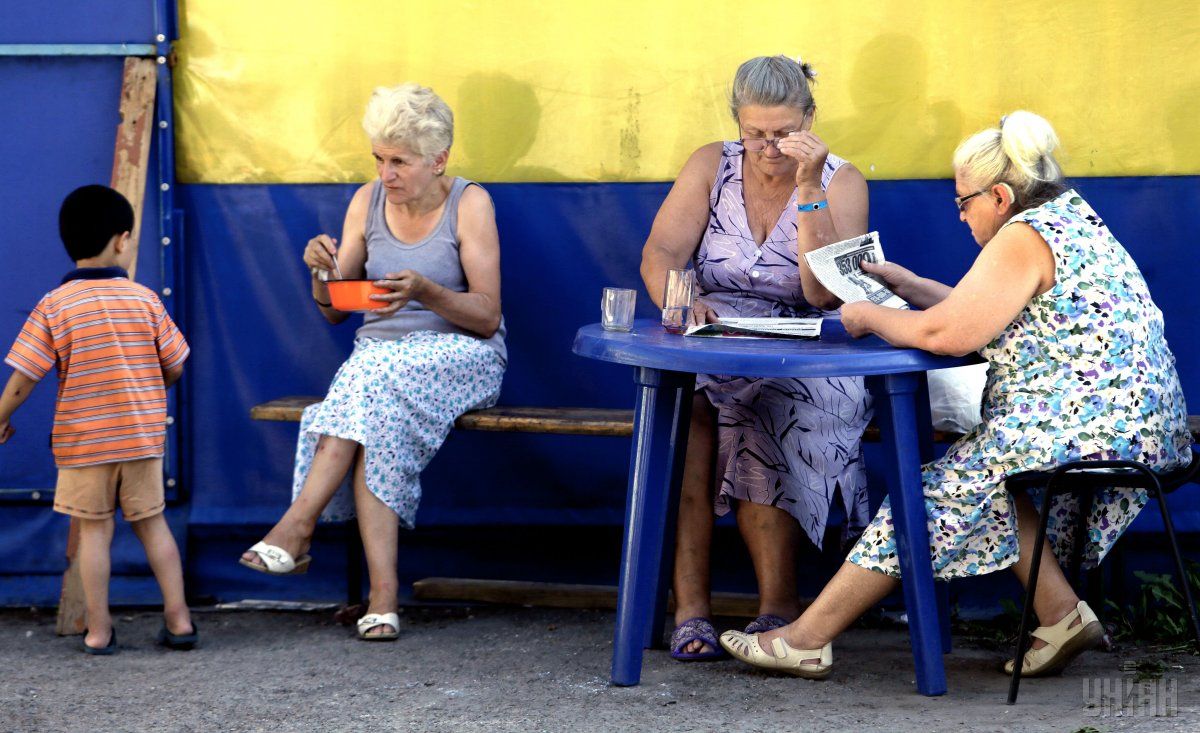
At the beginning of December, the UN Office for the Coordination of Humanitarian Aid in Ukraine (OCHA) began tweeting under the hashtag #UkraineNotForgotten to draw attention to the ongoing humanitarian crisis in the country’s east, according to Hromadske International.
The OCHA has calculated that nearly 4.4 million people are affected by the protracted conflict in the Donbas and 3.4 million are in need of humanitarian aid and protection. But according to the office’s most recent “Humanitarian Snapshot,” the 2017 Humanitarian Response Plan has been severely underfunded at $69 million, just 34 percent of the requirements funded.
With winter already underway, international aid organizations are anticipating an urgent need for services in eastern Ukraine but are also preparing to be hampered by lack of funding.
Read alsoReuters: U.N.'s World Food Programme says to stop food aid to eastern UkraineAccording to the UN OCHA’s Humanitarian Needs Overview for 2018, civilian protection remains the primary humanitarian need in eastern Ukraine due to ongoing active fighting, the saturation of landmines and other explosives, and the prevalence of conflict-induced displacement.
Over 1.6 million people have been displaced since the outbreak of the conflict in 2014, making the Ukrainian population of internally displaced people (IDPs) the ninth largest in the world.
In addition, 2017 saw a deterioration in people’s access to humanitarian goods and services, as well as a doubling of food insecurity and skyrocketing unemployment rates in conflict affected regions.
According to the OCHA, the increased price of food and utilities last winter led to “significantly higher unmet food needs” in both government controlled and occupied regions of eastern Ukraine and “as many as 23% of households [reported] that they lacked adequate food to meet their basic needs at the height of winter.”
Currently, up to 1.2 million people are moderately or severely food insecure in Ukraine’s east.
During a briefing for UN Member States in Geneva on December 7, Neal Walker, UN Resident and Humanitarian Coordinator in Ukraine, maintained that “the people of eastern Ukraine continue to pay the highest price for the conflict.”
Walker also appealed for $187 million to be allocated to humanitarian partners in Ukraine to provide the 2.3 million civilians considered most vulnerable with critical humanitarian assistance and protection, according to the 2018 HRP.
Meanwhile, the UN Refugee Agency (UNHCR) has been stepping up winter aid supply to Ukraine’s east.
“The aid comprises clothes, warm jackets and boots, coal for heating and cash grants to cover winter expenses,” said UNHCR spokesperson Andrej Mahecic at a press briefing in Geneva on December 19.
Read alsoEU to consider Ukraine's bid for new aid program within few months - Envoy“Recipients include some 15,300 people, who are mainly single parents, elderly, families with many children, and people with disabilities or chronic illnesses.”
That being said, Mahecic also reported that the UNHCR only received 35 percent of the funding it needed to complete its planned activities in 2017.
International organizations have also expressed increased concern due to the escalation of hostilities in Ukraine’s Donbas region during the month of December.
“A return to normality, wherein civilians can once again resume their everyday lives without fear of shelling and landmines is the first step to a long-term sustainable peace,” Apakan maintained.
After eight people were injured as a result of shelling in a Novoluhanske settlement on the evening of December 18, UN representative in Ukraine Neal Walker also expressed concern on Twitter.
Read alsoNew outpatient clinic to serve population in Ukraine's eastern conflict zone – media“Deeply concerned about [the] humanitarian consequences of recent escalation of hostilities in [eastern] Ukraine,” he wrote. “[With] freezing temperatures outside, vulnerable women, elderly and children will suffer the most.”
Despite the Trilateral Contact Group (Ukraine, Russia and the OSCE) recommitting to the ceasefire in Minsk on December 20, the SMM continues to record ceasefire violations daily.

